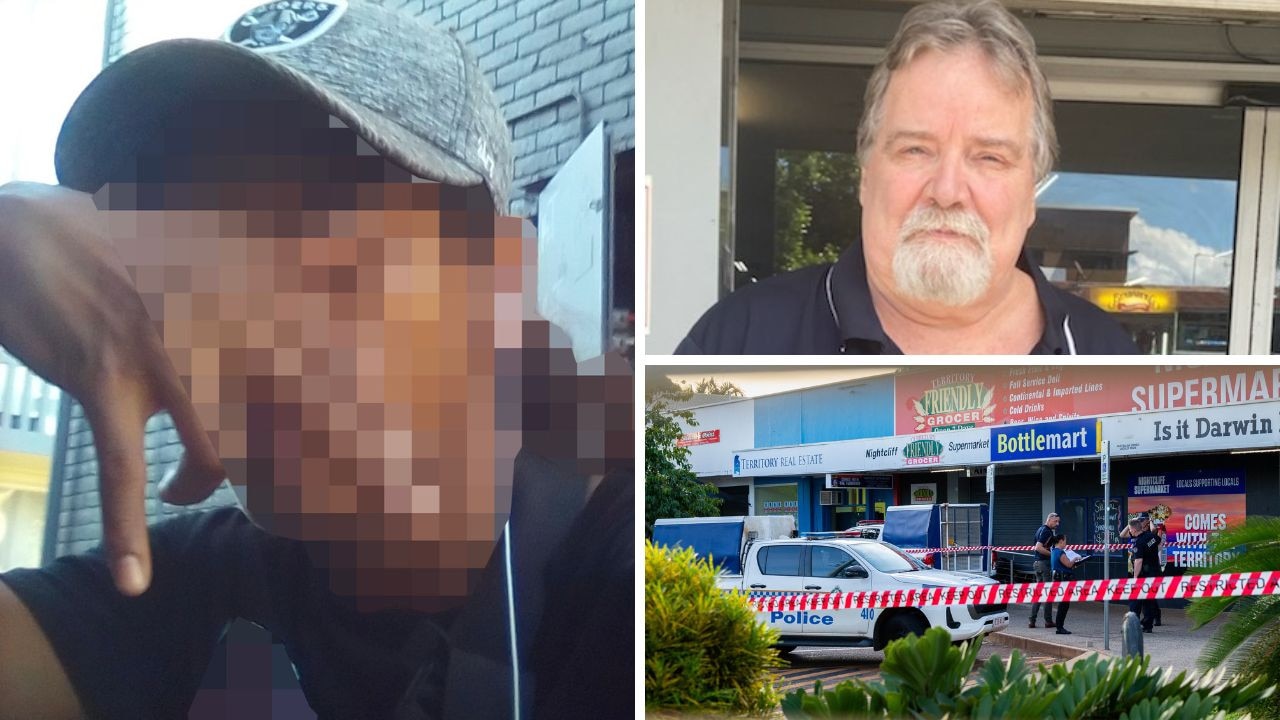Harrowing footage of the last moments of Ms Dhu’s life to be released
DISTURBING footage showing the final moments of a woman’s life as she endured “unprofessional and inhumane” treatment in custody has been released.
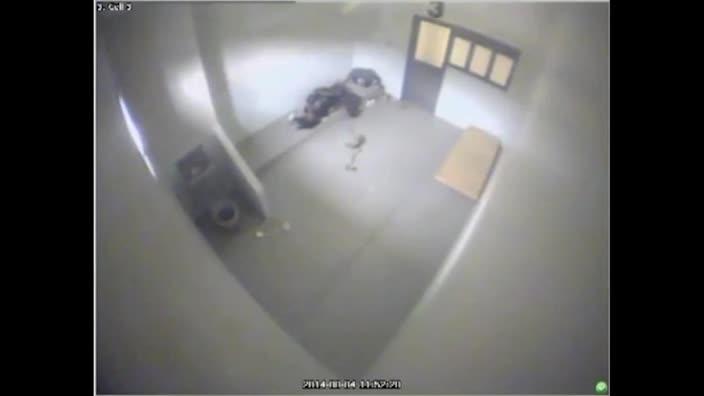
THE death of a young Aboriginal woman in custody has sparked an outpouring of emotion outside a Western Australian court today.
Ms Dhu, whose first name is not used for cultural reasons, died two days after being locked up at South Hedland Police Station in August 2014 for unpaid fines totalling $3622, stemming from charges including assaulting police.
Coroner Ros Fogliani today found the 22-year-old’s death could have been prevented if someone took her temperature and treated her infection with antibiotics.
Ms Fogliani told the inquest “profoundly disturbing” vision showed how police “disregarded (Ms Dhu’s) welfare”.
She described the treatment of Ms Dhu as “unprofessional and inhumane” and agreed to release CCTV footage of Ms Dhu’s last hours at the police station, but not of her final harrowing moments in hospital.
Some footage shows police dragging and carrying Ms Dhu’s limp body to a police van.
Another clip shows an officer pulling Ms Dhu by the wrist to sit her up before dropping her, causing Ms Dhu to hit her head.
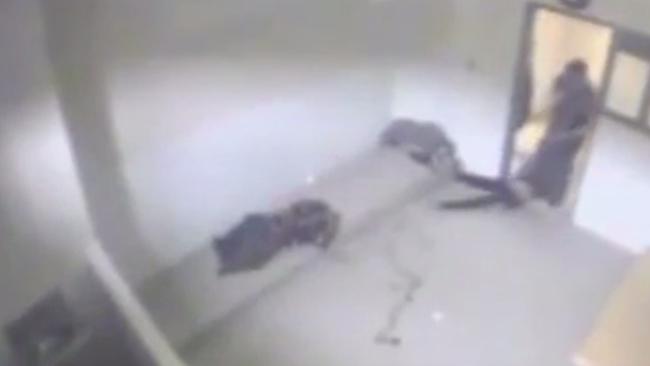
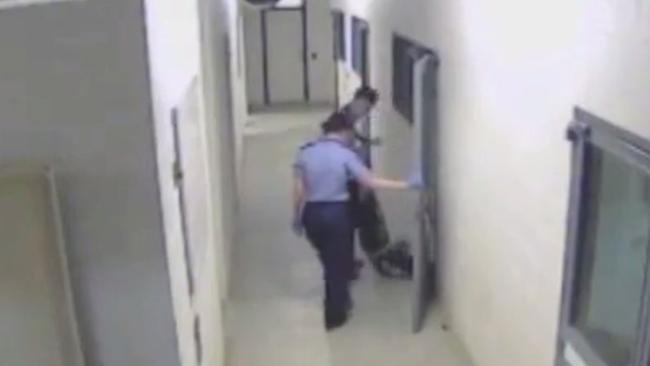
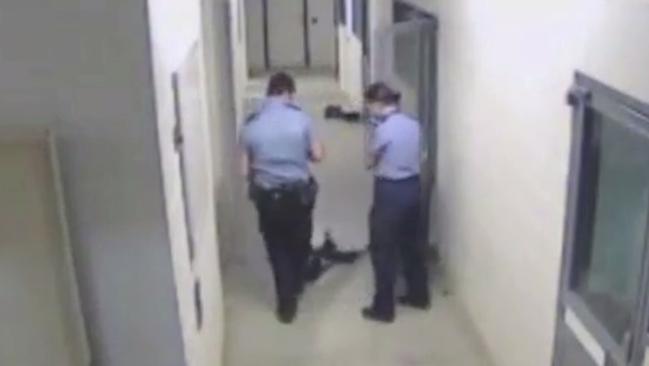
Ms Dhu’s suffering as she lay close to death at the lockup was compounded by the unprofessional and inhumane actions of some police officers, the coroner found.
She said Ms Dhu’s overall treatment and care from police and hospital staff was below the standards expected.
While the evidence did not establish that police caused or contributed to Ms Dhu’s death, irreversible failings were made, and Ms Fogliani said it was profoundly disturbing to witness the appalling treatment of Ms Dhu on the day she died.
“Ms Dhu was a dearly loved by her family and her death has left them heartbroken,” she said.
“In her final hours she was unable to have the comfort of the presence of her loved ones, and was in the care of a number of police officers who disregarded her welfare and her right to humane and dignified treatment.”
WA Police Commissioner Karl O’Callaghan told reporters the images of Ms Dhu’s treatment were disturbing.

“We do have some very basic obligations to the people who come into our care,” he said.
“From the moment they are in our custody, we are the guardians of their safety, their welfare and, of course, their dignity and I accept that we failed Ms Dhu in this regard.
“She was not treated with the right level of human compassion or dignity.”
Ms Dhu died during her third visit in as many days to the Hedland Health Campus from staphylococcal septicaemia and pneumonia after an infection in her fractured ribs spread to her lungs.
During the inquest, some police testified they thought Ms Dhu was faking illness and was coming down from drugs, while some medical staff also thought she was exaggerating.
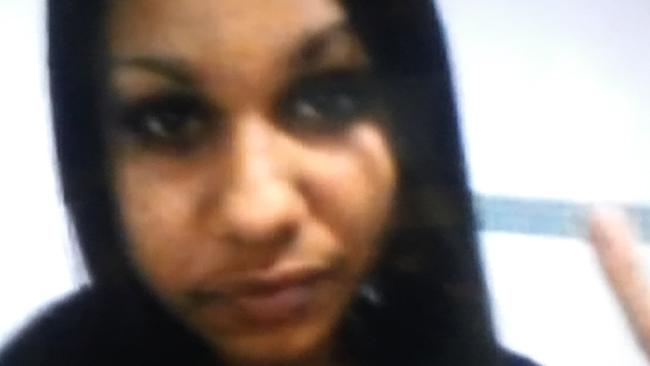
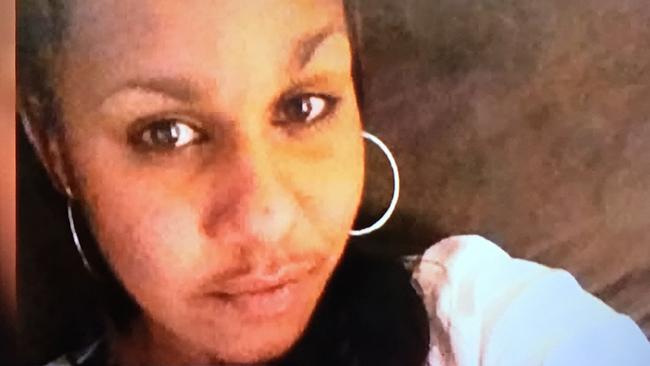
The coroner today reiterated a recommendation made by the Royal Commission into Aboriginal Deaths in Custody.
“What benefit does the community derive from the incarceration of indigent fine defaulters?” she said.
“It is my expectation not to see such treatment of a person held in custody again.”
Some people in the packed courtroom shouted “Racism!” and “Shame on you!” after the coroner finished her remarks.
Relatives and supporters of Ms Dhu addressed media outside the court after the findings were handed down.
Ms Dhu’s mother Della Rose said she was hoping for justice and “still (hasn’t) got it”.
One man described the findings as “tokenism” and said the WA police and health services had let Ms Dhu down. He said her death was the result of systematic racism.
“The family has been mourning,” he said.
“I don’t understand why you treat Aboriginal people the way you do in this country.
“There’s never justice for our Aboriginal people.
“Our people are dying, no one has been made accountable.
“We’re not going to stand for it anymore.
“You can’t get away with murder.”
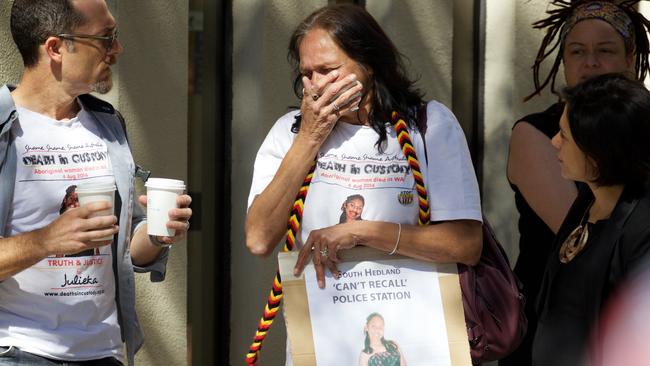
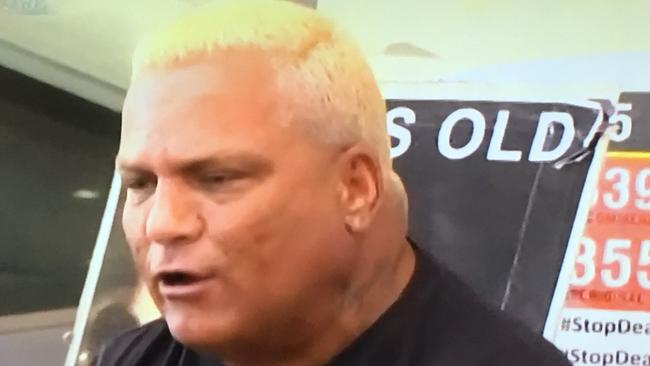
According to the most recent publication by the Australian Institute of Criminology, 16 per cent of all deaths in custody between 2011 and 2013 across Australia were Aboriginal (15 of 95 deaths), a sharp fall from the number of deaths recorded in the 80s and in the 90s.
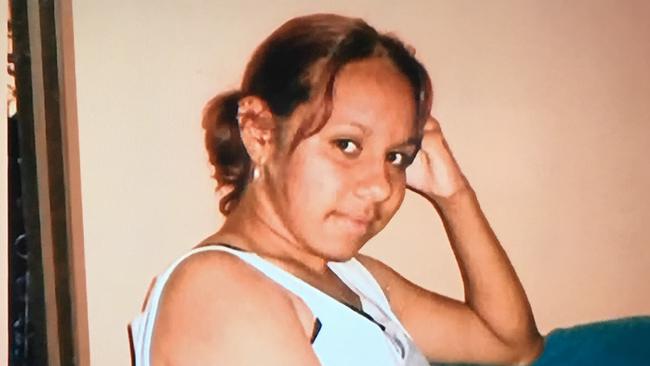
Earlier, grandmother Carol Roe and mother Della Roe say they wanted the world to see the vision, which was repeatedly played during the inquest.
“I hope the coroner hands down the truth, then we will feel like there has been some justice. Then we can put my girl to rest,” Carol Roe said.
“People need to see with their own eyes how my girl was treated.”
Ms Dhu’s family initially opposed media requests to obtain the vision but their lawyers later said the family had reconsidered their position and believed it was in the public interest.
The coroner dismissed the application, saying the footage was distressing and Ms Dhu’s privacy outweighed the public interest, but today reversed the decision, 10 days before what would have been Ms Dhu’s 25th birthday.
Aboriginal Legal Service of WA chief executive Dennis Eggington said the family and the Aboriginal community had suffered enough, describing Ms Dhu’s death as a cruel injustice.
Ruth Barson from the Human Rights Law Centre said it had been two years since Ms Dhu’s “cruel” death but the state government continued to lock up people who could not pay their fines — a policy that disproportionately affected Aboriginal women.
“Western Australia desperately needs to fix its over-imprisonment crisis and to change its fines laws to be fair and flexible,” she said.
— With AAP



